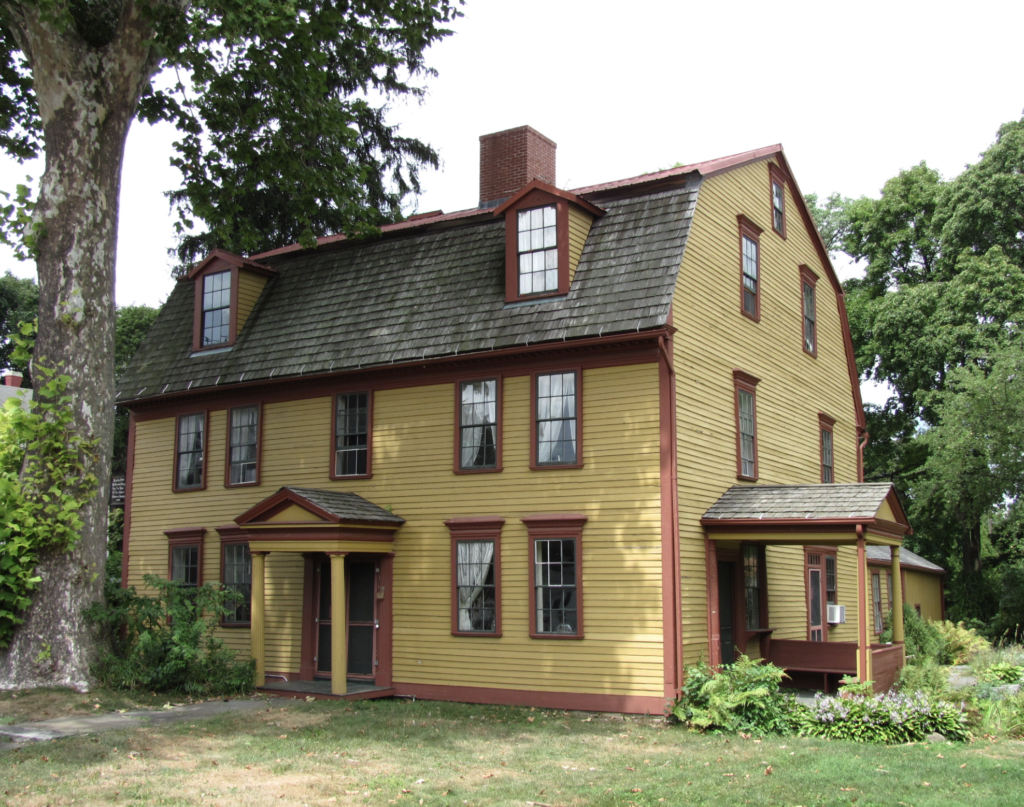Historical Commission Plans Update Of Town Preservation Plan

The Strong House, is the second oldest house in Amherst and home to the Amherst History Musuem. Photo: Wikipedia
Report On The Meeting Of The Amherst Historical Commission, February 16, 2022
The meeting was conducted on Zoom and was recorded.
Present
Jane Wald (Chair), Katherine Davis, Becky Lockwood, Pat Auth, Hetty Startup, Robin Fordham, Jan Marquardt. Staff: Ben Breger, Planning Staff Liaison
There were more questions than answers at this meeting.
Members first discussed a draft for a Request for Proposals (RFP) to update the 2005 Historical Preservation Plan, for which Town Meeting had appropriated $25,000 in 2018. The basic information is already in the existing plan; but for example information about the resources of indigenous and non-white populations is lacking. The cost of a full preservation plan was estimated several years ago at about $35,000, so it was thought this might be enough money to fill in the missing information. If not, staff says the scope of the proposal can be scaled back.
The next question was whether the proposal should go through the bid process or the town should contract directly with the Pioneer Valley Planning Commission (PVPC) where their preservation historians might do the work. They know Amherst and town staff well as they have done so much work for the town in the past.
Robin Fordham asked whether we ought to ask the consultant to list the most threatened of our historical resources to protect them. This was reinforced by Pat Auth, who reminded the commission that the west side of North Pleasant Street is threatened by development. Hetty Startup suggested that the consultant work with neighborhoods for public input.
The commission members seem to agree that a contract with PVPC might be the route to choose with the strong recommendation that the Preservation Plan be updated every five years because the current 17-year interval is much too long.
Next, the commission asked what our policy is for placing preservation restrictions on projects completed with Community Preservation Act (CPA) funds. A permanent preservation restriction placed on a property and recorded with the State or the federal Department of the Interior takes many years and requires all parties to agree and sign off on the terms of any restriction. Often an applicant completes a project with CPA funding but never signs a completed preservation agreement. The town could require a 30-year temporary preservation restriction for small projects before any funds are expended to be recorded with the Registry of Deeds. This is a relatively easy process. Alternatively, the commission could devise a threshold (like a monetary value over $100,000, criteria based on the historical importance of a structure, or some percentage of the assessed value, etc.) for imposing a temporary or permanent preservation restriction on a property which is signed and recorded by local, State, and the federal government depending on the source(s) of the funding.
Several members of the commission suggested that a preservation “easement” is a more palatable description than a preservation restriction, but “restriction” is the language specified in the appropriate legislation. All agreed that the purpose is to encourage people to apply for CPA funding to preserve our historic resources. Staff recommends that this policy be in place before the next distribution of CPA grants.
Lastly, was a discussion of feedback from the presentation to the Planning Board of the proposed revision to the existing demolition delay zoning bylaw. It has been recast as a general town bylaw which is easier to pass and enforce than a zoning bylaw to promote the preservation of structures of historical and architectural significance. The commission felt that citizen boards and the public need to be educated about the economic and social values of historic preservation. Also, homeowners and potential buyers need to know that they are subject to the provisions of this bylaw before they make changes to houses more than 50 years old. The Planning Board wants to review revisions to the draft bylaw before it is forwarded to the Town Council for approval.

2 thoughts on “Historical Commission Plans Update Of Town Preservation Plan”